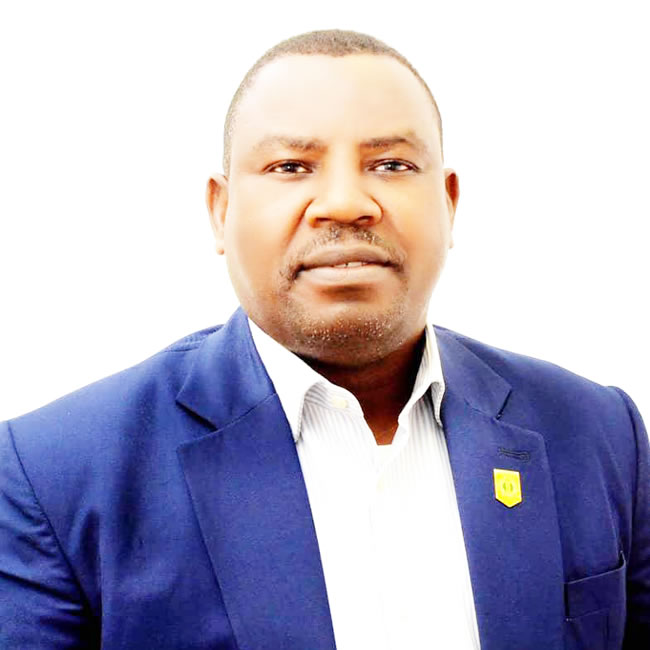The National President of the National Union of Banks, Insurance, and Financial Institution Employees (NUBIFIE), Comrade Anthony Abapa, in this interview with CHRISTIAN APPOLOS, speaks about what the Federal Government must do to address the country’s economic challenges and improve the lives of Nigerians. Excerpts:
How would you assess the performance and welfare of workers in 2024?
For workers in the banking and insurance sector, 2024 was very tough. It was a year with many unexpected challenges caused by government’s policies. However, in terms of welfare and decent working environments, there were significant improvements. Employers in the sector took the issue of occupational health and safety seriously, placing a high premium on the lives of workers. They did their best without much compromise.
Employers have largely implemented the new minimum wage across the sector, from top-ranking officers to the last person in the industry. For those yet to fully implement it, we are actively pursuing them and confident they will comply soon.
Generally, Nigerian workers in 2024 faced a mixed reality. While efforts were made to improve welfare through measures like increased minimum wage and pensions, these were overshadowed by inflation, subsidy removal, and rising unemployment. Though progress was made, economic hardships often outpaced these benefits, leaving many workers struggling to make ends meet.
How have the economic policies implemented by the current administration impacted workers?
The policies implemented by the current administration have had a terrible impact on workers. The removal of the fuel subsidy, for instance, led to significant hardship, increasing the prices of goods and services, shutting down many businesses, and worsening suffering across the country.
Pump price of fuel connects to every aspect of business and survival in Nigeria. Its subsidy removal unleashed untold hardship on Nigerians, especially those at the lower economic levels, and affected all means of livelihood. We are still enduring this excruciating hardship.
Additionally, workers have been disproportionately affected, as fixed-income earners are hit the hardest. Economic reforms seem to favor only a select few, while the majority of the population suffers. The current fuel subsidy removal policy may have good long-term intentions, but it disproportionately disadvantages the poor, especially those with low earnings.
For real progress, the government must address this hardship and work to alleviate citizens’ suffering. Policies that push citizens further into poverty cannot result in economic growth. The administration must abandon theoretical approaches and face the realities on the ground.
The government must adopt a step-by-step strategy, starting with key economic sectors and expanding across all sectors to rescue Nigeria from its current state. The president must take honest, decisive steps to lift the country and its citizens out of poverty and economic decline.
What specific changes or measures would you recommend to address the hardship faced by Nigerians?
Considering the heightened economic hardship resulting from current policies, alternative policies that promote social protection would be the best approach. The President and his team must prioritize social security safety nets. The country also needs policies that stabilize the economy, especially market forces, while empowering citizens to invest and spend more to revive the economy.
While borrowing is sometimes necessary, the government must also design strategic, citizen-focused policies to avoid economic depression. Borrowing without investing in human capital development will not help our situation. Genuine, people-oriented policies are essential.
In 2025, the government must move away from policies that exploit citizens and benefit only a few. Countries that have achieved economic success invested in their citizens, prioritised human capital development, and established strong social security systems. Governance theories and policies that fail to make citizens the central driving force are doomed to fail.
Economic growth is impossible if government policies fail to lift citizens out of poverty. A country cannot thrive when its population is overwhelmingly impoverished. To complement policies like fuel subsidy removal and tax and tariff increases, the government must prioritize social protection.
Additionally, security is crucial. Insecurity has become a major obstacle to economic growth in Nigeria. Kidnapping, banditry, and terrorism are forcing farmers to abandon their lands and discouraging investments in agriculture. Without addressing insecurity, agriculture cannot thrive, and the consequences will be dire.
The government must adopt a zero-tolerance approach to insecurity. Ethnic sentiments that protect criminals and terrorists must be eradicated. Investment in security and agriculture will attract both foreign and local investments, transforming the economic narrative for the better.
Looking at this administration’s economic policies, do you believe 2025 will bring better prospects for workers and Nigerians in general?
The Tinubu administration in 2025 must focus on implementing policies that tangibly reduce poverty and enhance the standard of living of Nigerians. Economic growth cannot exist in isolation; it must translate into better opportunities and improved well-being for citizens, particularly workers who bear the brunt of inflation and stagnant wages.
Key among the government’s priorities should be robust poverty alleviation programs targeting both urban and rural communities. Policies must go beyond temporary relief and focus on creating sustainable jobs, empowering small businesses, and supporting the informal sector where millions of Nigerians earn their livelihoods.
Inflation remains a critical challenge, eroding the purchasing power of workers and exacerbating inequality. The government must take decisive measures to stabilise prices, including ensuring a steady supply of essential commodities, addressing issues in the foreign exchange market, and promoting local production to reduce dependency on imports. Monetary and fiscal policies should be aligned to curb inflation without stifling growth.
For workers, expectations include practical reforms such as a livable minimum wage, improved working conditions, and enhanced social welfare systems. The administration must prioritize economic diversification, invest in critical sectors like agriculture, manufacturing, and technology, and tackle structural challenges hindering productivity. Nigerians are counting on President Tinubu’s team to deliver inclusive growth and a fairer economy in 2025.
READ ALSO: FG prioritises decommissioning of old sites for environmental sustainability









